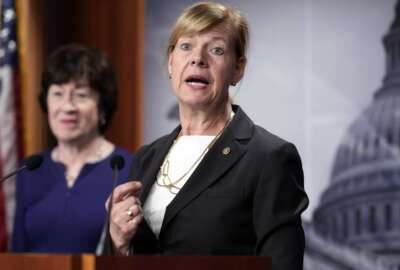The Senate passed the Hatch Act Modernization Act of 2012 (S. 2170) by unanimous voice vote Friday, Nov. 30.
“I am pleased the Senate approved this important legislation, which will allow more Americans the right to run for public office and serve their communities, and treat federal employees and employees of the District of Columbia more fairly,” said Sen. Daniel K. Akaka, in a press release. Akaka introduced the bipartisan bill, which was co-sponsored by Sens. Joe Lieberman (I-Conn.) Carl Levin (D-Mich.) and Mike Lee (R-Utah).
S. 2170 updates the Hatch Act, a 1939 law that curtails the political activities of employees of the federal government. Congress has not updated the act since 1993. The Hatch Act also restricts the political activities of state and local employees whose jobs are linked to federal funds and government employees of the District of Columbia.
Under the bill passed by the Senate, most state and local employees would be able to run for partisan elective office. In addition, employees of the District of Columbia’s executive branch would now face the same Hatch Act restrictions as employees in state and local governments. The bill also adds a broader range of penalties to the Hatch Act’s penalty provisions.
If signed into law, the bill would also allow federal employees living in Washington, D.C., to run in partisan local elections as independent candidates. This is already permitted in areas with large concentrations of federal employees, such as the D.C. suburbs.
The bill still needs to pass the House of Representatives before it can be signed into law.
RELATED STORIES:
Senate committee makes quick work of real property, Hatch Act bills
Analysis: Hatch Act modernization good for feds, better for locals
Copyright
© 2024 Federal News Network. All rights reserved. This website is not intended for users located within the European Economic Area.





